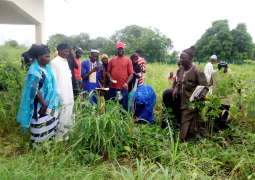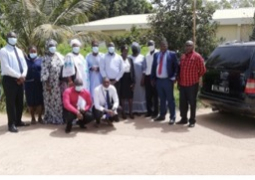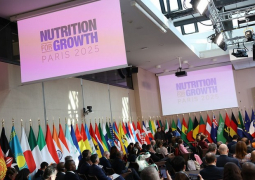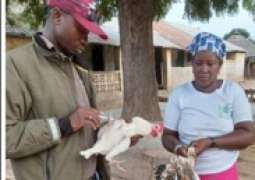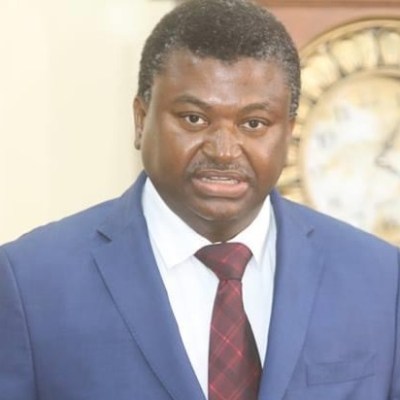
Dr Ahmadou Lamin Samateh made this disclosure on Monday, 4th February 2025 at his office in Banjul, as he read a statement to join global commemorations marking World Cancer Day.
The theme for this year’s event is ‘united by unique’ and the campaign focuses on people centered approach to cancer care by placing individuals, communities and their stories at the heart of cancer care and health systems.
His statement reads; “Today February 4th is World Cancer Day. On this day annually, the world unites to raise awareness about cancers, its risk factors, prevention, detection, treatment and to mobilize actions to address the global cancer epidermic. Therefore, the Ministry of Health joined the world for the first time, to commemorate this important day. Without doubt, many of you are aware of the pink October, which is the breast cancer awareness month.”
Minister Samateh reminded that October is liver cancer awareness month too, adding that each of the major cancers is designated a month and a ribbon color to raise awareness.
“February 4th is meant to commemorate all cancers. Cancer remains one of the public health problems affecting the world; is a leading cause of death worldwide with low- and middle-income countries shouldering most of the cancer burden.”
In Africa, he said, cancer constitutes a significant share of the growing burden of non-communicable diseases, recalling that in the year 2020, approximately, 1.1 million new cancer cases occurred on the continent with around 700,000 deaths.
“If urgent measures are not taken, cancer mortality in the region is projected to reach about 1 million deaths per year by 2030.”
In the Gambia, the burden of cancer continues to rise with a high mortality rate due to late presentation.
Minister Samateh also made reference to the new cancer cases registered in the country as well as the deaths related to the disease in the year 2022.
He also cited the top five common cancers namely; cervical, liver, breast, lung and prostrate cancers in that order.
It is further estimated that by 2030, without strong measures cancer incidences and mortality will increase by more than 40%.
To revert the impact of cancer in the country, he said, in 2022, the National Cancer Control Programme (NCCP) was established by the government aimed at reducing its burden that is morbidity and mortality and to improve the quality of lives for individuals affected by cancer.
This unit, he added, is mandated to coordinate and streamline all cancer control activities in the country, saying cancer is a multi-dimensional disease that requires all hands-on deck to fight against it.
“It doesn’t know boundaries and so anyone can be affected. However, the easiest way to fight cancer is to stop it before its starts and to prevent the spread of it. Between 30% -50% of cancers can be prevented by avoiding or modifying the risks factors associated with those cancers.”
Minister Samateh also highlighted some of the risk factors, which includes; tobacco smoking, alcohol consumption, associated dietary factors, obesity and overweight.
“Some infections, environmental pollutants and radiation among others, are all considered to be risk factors for the development of cancer. Beyond prevention, early detection is the next line of defense as 30% treatable cancer can be cured, if detected early.”
However, he acknowledged that early detection becomes successful only when it is linked to effective treatment and to achieve the goal of reducing cancer burden in the country, the National Cancer Control Strategy has been developed to guide this and streamline all cancer control activities in the country.
“The National Cancer Control Strategy is focused on prevention, early detection, diagnosis, treatment and a palliative care through strengthening health care infrastructure and promoting collaboration among stakeholders.”
He observed that all cancer related activities should be endorsed by the National Cancer Control Programme to align those activities with the National Cancer Control Strategy.
To that end, he appealed to cancer CSOs, patient support groups, associations that are involved in cancer activities to liaise with the NCCP for any activity they would want to embark on.
“Cancer is more than just a medical diagnosis; it’s deeply a personal matter. Behind every diagnosis lies a unique human story; stories of grief, pain, healing, resilience, love and more. Every experience with cancer is unique and it will take all of us united to create a world where we look beyond the disease and see the person before the patient.” he added.


